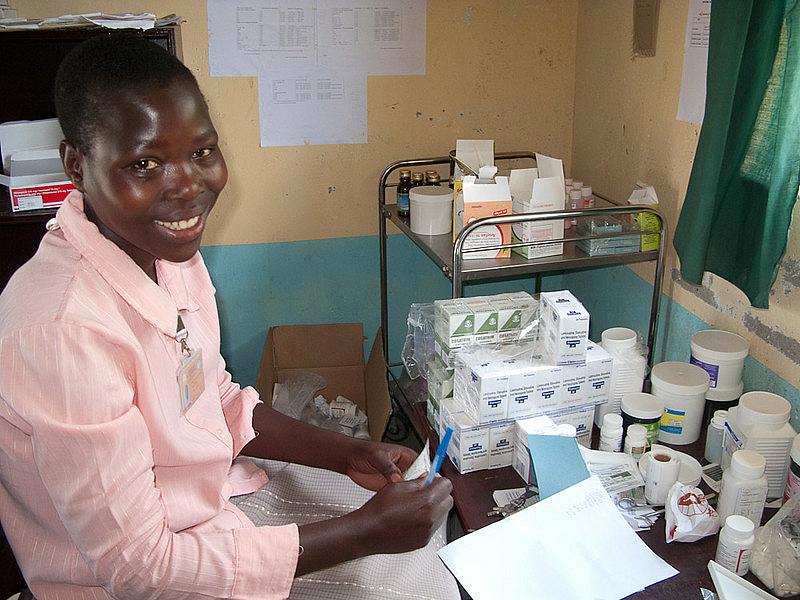Empowering women through equitable access to family planning services

A nurse educating women on family planning methods
The chances of the woman returning for contraceptive advice after giving birth are uncertain thus resulting in high unmet need of contraception.
Zimbabwe National Family Planning Council (ZNFPC) in partnership with the Ministry of Health and Child care (MOHcc) are conducting insertion trials of Postpartum Intrauterine Contraceptive device (IUCD) after birth to motivate and promote contraception acceptance.
Speaking at an Adolescent Sexual Reproductive Health/Family Planning (ASRH/FP) forum (ZNFPC) Manicaland Provincial Manager, Dyson Masvingise said Insertion of the IUCD immediately after delivery has the advantage of assurance that the woman is not pregnant when they come back for their six weeks check-up.
“Immediately after delivery, the woman is also likely to have a high motivation for accepting contraception, and the health-care centre provides a convenient setting for inserting the IUCD,” said Masvingise.
He added that In Zimbabwe at the moment six sites are offering the insertion of IUCDs trials.
“In Manicaland ,Mutare Provincial hospital and Sakubva hospital are offering trial services were as in Harare two sites are doing the same as well as in Matebeland North which also has two sites ,”he said .
Masvingise added that the approach is more applicable since delivery may be the only time when a healthy woman comes into contact with health-care providers and to avoid situations that when women come back after six weeks they will not be pregnant by mistake.
“The chances of the woman returning for contraceptive advice are uncertain. Thus resulting in high unmet need of contraception .The safety of postpartum IUCD insertion in the included studies is reassuring and, in spite of the higher expulsion rates, it may cover some unmet need for contraception,” said Masvingise.
0, 4 percent of women in Zimbabwe use IUCDs and only 8,4 percent use sub-dermal implants (Multiple Indicator Cluster Survey (MICS) 2014.
The IUCD copper T 380 A is a small, T-shaped, plastic device that is inserted into and left inside the uterus.
There are two types of IUDs the hormonal IUD which releases progestin and is approved for use for up to five years and the copper IUCD which does not contain hormones and is approved for use for up to 10 years.
Both types of IUCDs work mainly by preventing fertilisation of the egg by the sperm. The hormonal IUCD also thickens cervical mucus, which makes it harder for sperm to enter the uterus and fertilise the egg, and keeps the lining of the uterus thin, which makes it less likely that a fertilised egg will attach to it.
In Zimbabwe, only non-hormonal IUCDs are available.
Masvingise added that clinician experience may influence expulsion rates hence the need for skilled clinicians.
“Doctors and Nurses need thorough training for postpartum IUCD insertion for more experience to be gathered,” he said.
United Nations Population Fund (UNFPA), Country director Mr .Cheikh Tidiane Cisse in his remarks at a World Contraception day in Checheche said more work is needed in promoting use of long acting contraceptives like IUCD.
“The unmet need for contraceptives continues to be high for adolescents who need family planning services for spacing their children and women above 40 years who need it for limiting the number of their children,” he said.
He cited that Universal access to sexual and reproductive health care is very central to UNFPA’s mandate with access to family planning or contraceptives being a major component of this work.
“We believe that access of family planning is a fundamental human right which empowers women and girls of childbearing age to make informed and life-saving choices about their reproductive health,” said UNFPA country director.
He added that “Many women and girls in Zimbabwe particularly those in poor rural communities continue to suffer disproportionately from problems such as unwanted pregnancies ,unsafe abortions, pregnancy related complications resulting in deaths and disabilities and sexually transmitted infections due to lack of access to SRH services like family planning,”.
.
